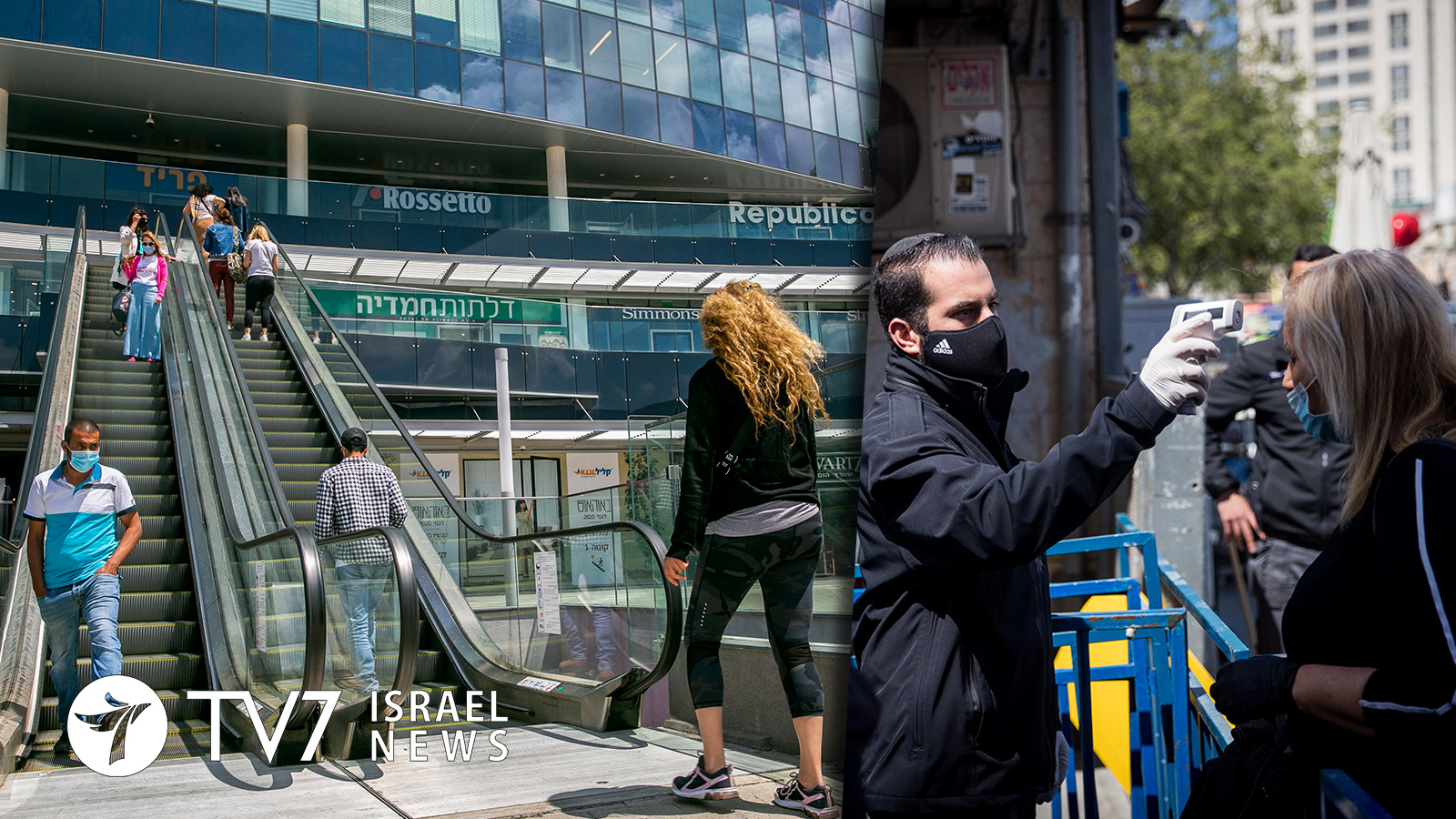Nine more Israelis have succumbed to the novel coronavirus according to the latest data published by the Israeli Health Ministry, raising the total number of victims to 202.
An additional 1,695 people tested positive for the disease over the weekend, and 129 patients are currently diagnosed as critically ill.
1,111 Israelis recovered from COVID-19 since TV7’s last report on Friday, bringing the total of those nationwide who have survived the outbreak to 6,796.
Cabinet-approved measures to ease virus-related restrictions on the economic sector prompted thousands of stores and hair salons to reopen after taking effect yesterday following a nearly month-and-a-half long government-enforced closure. The business community is keen to relaunch operations while remaining in compliance with amended restrictions aimed at protecting public health.
Most of shopkeepers with whom TV7 spoke expressed joy over the latest developments.
“We return to work with a lot of pleasure,” Jerusalem Hairdresser Shay Amzaleg told Reuters, saying work will resume gradually toward a hoped-for return to normal levels.
Others are frustrated over ongoing limitations by Health Ministry guidelines they feel make it increasingly challenging to make sales. “We hope for the best, because this way it’s very difficult to work,” said Jerusalem clothing shop owner Shimrit Razi, explaining that she had to display products on a table outside as to restrict the number of customers permitted inside.
Not all businesses were permitted to reopen, including the country’s major open-air markets. The continued closure prompted several protests, with some escalating into violent riots. According to the Committee Chairperson of Jerusalem’s famous Mahane Yehuda Market, the Israeli government has failed to address growing distress of stall owners faced with mounting economic hardship. “People, the vendors here are crying and screaming loud, they have nothing to eat at home. Nothing,” Tali Friedman told Reuters, complaining that the market should never have been forced to close while regular grocery stores were allowed to remain open during the viral outbreak.
